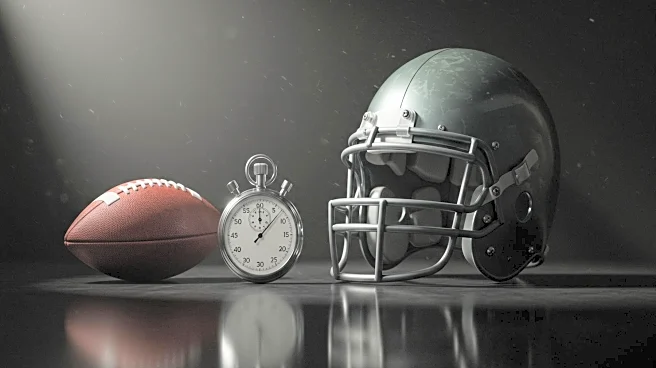What is the story about?
What's Happening?
Cameron Heyward, a prominent defensive tackle for the Pittsburgh Steelers, is facing criticism from fans and former NFL executives due to his decision to hold out for a revised contract. This comes less than a year after he signed an extension with the team. Doug Whaley, a former Buffalo Bills general manager and member of the Steelers' front office, expressed his disapproval of Heyward's actions during an interview with 93.7 The Fan. Whaley described Heyward's move as an 'abject failure,' citing the damage to Heyward's reputation and goodwill built over 15 years. Heyward's pursuit of a new deal has led to public backlash, with fans labeling him as greedy, especially after he hinted at missing regular-season games to secure a better contract. Despite his All-Pro performance last season, Heyward's current contract does not reflect his value, as it guarantees no money and was not a raise. The Steelers organization has yet to show interest in renegotiating his contract.
Why It's Important?
The situation surrounding Cameron Heyward's contract dispute highlights the complex dynamics between player performance, contract negotiations, and public perception in professional sports. Heyward's case underscores the challenges athletes face when seeking fair compensation, especially when their performance outpaces their contractual terms. For the Steelers, resolving this issue is crucial to maintaining team morale and ensuring that one of their key defensive players remains focused and motivated. The outcome of this dispute could set a precedent for future contract negotiations within the NFL, influencing how teams and players approach extensions and holdouts. Additionally, the public relations aspect of Heyward's decision could impact his legacy and relationship with fans, depending on how the situation unfolds.
What's Next?
As the contract dispute continues, the Steelers and Heyward's camp will need to navigate the potential fallout from this situation. If Heyward's performance remains strong, the team may be more inclined to revisit contract discussions. However, if his play declines or if the public backlash intensifies, it could complicate negotiations and affect team dynamics. The Steelers' management will need to weigh the benefits of retaining Heyward against the potential risks of setting a precedent for other players seeking contract adjustments. Meanwhile, Heyward must balance his financial aspirations with maintaining his reputation and legacy within the organization.
Beyond the Headlines
This contract dispute also raises broader questions about the financial structures within the NFL and how they impact player loyalty and team cohesion. The lack of guaranteed money in Heyward's contract reflects a common issue in the league, where players often seek security through renegotiations. The situation may prompt discussions about the need for more player-friendly contract terms, potentially influencing future collective bargaining agreements. Additionally, the public's reaction to Heyward's actions highlights the cultural expectations placed on athletes to prioritize team loyalty over personal financial interests.















